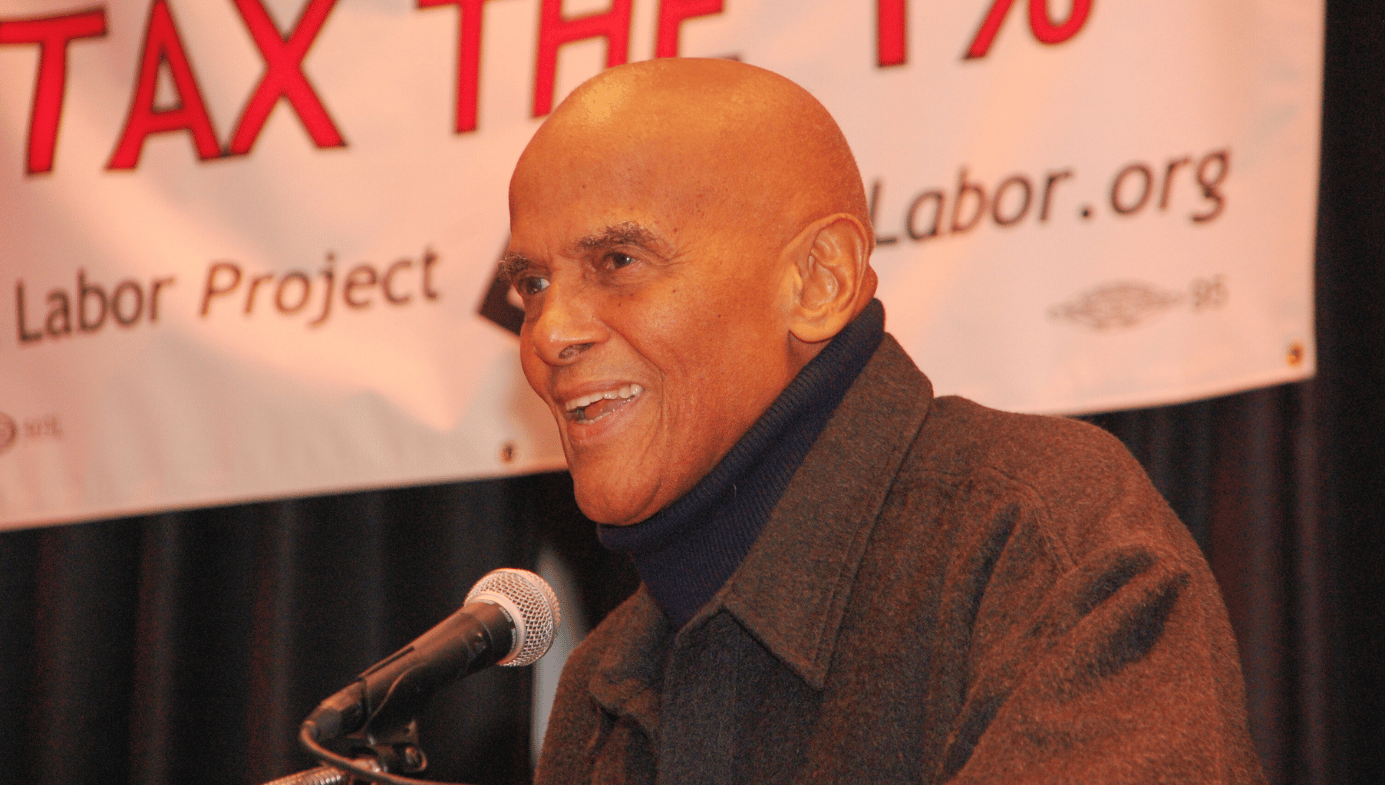Art
Publicly Shaming a Musician for Calling a Composition by Its Name
The silencing of a voice does not lead to discourse, in art or in politics.

Over the long weekend of May 30 to June 2, my wife and I attended the eclectic OBEY music convention in Halifax, Nova Scotia, which I was covering for the British magazine The Wire. After the first two days passed without incident, the final day featured a set of distressing events that led to the cancelation of a concert by American composer Mary Jane Leach, in which she had been scheduled to present her compositions Pipe Dreams and Dowland’s Tears. While these events have been discussed on social media, they have never, to my knowledge, been systematically described in the press. I am hoping that this report will help provide some clarity, even for those who may not agree with my opinions.
On the afternoon of June 2, Leach gave a talk on the work of composer Julius Eastman (1940-1990). Leach was friends with Eastman, who died three decades ago, at the age of 49. She also is co-editor of the book Gay Guerilla: Julius Eastman and His Music, published by the University of Rochester Press in 2015.
The title of the book takes its name from one of Eastman’s compositions, and indeed points to his naming conventions, which are at the root of the OBEY controversy. Eastman—a gay, black man who was homeless during parts of his adult life—wrote minimalist music in a style that gained notice in New York City in the 1970s and ‘80s, and was associated professionally and personally with such notable contemporary composers as Morton Feldman (1926-1987) and Petr Kotik (b. 1942). The titles of his instrumental works carried intentionally provocative titles, and contained demeaning, vernacular terms that referred to his race and sexual orientation. Other titles reflected his lack of commercial success, such as If You’re So Smart, Why Aren’t You Rich?
I have chosen to avoid citing the most provocative titles here, in order to avoid disrupting the flow of discourse. I have written about performances of Eastman’s work in the past, using the full titles of the compositions, and have had those writings published by editors who didn’t feel the need to change my wording or insert asterisks. When I played recordings of Eastman’s music on the radio, I decided not to say the titles of the works, but instead alluded to them with the rather awkward term “n-word.” The uncensored titles of his works can readily be found on Amazon, Wikipedia and YouTube, however, as well as in the pages of The New York Times, The New Yorker and many other publications.
Referring to a work of art, music or literature with a title that contains a potentially offensive term, or one that includes a word that we know we’re not “supposed to” use, presents writers and broadcasters with a difficult decision. In some instances, editorial guidelines or even regulatory standards might dictate our choice. But often, it is up to the individual writer or speaker to make the call. During her talk at OBEY, Leach made the decision to call Eastman’s works by name. She did not do so lightly or without understanding the import of her words. Indeed, she began her talk by playing a recording of Eastman introducing a 1980 concert. In that recording, he announced the pieces that Leach cited in her talk. Eastman acknowledged that the titles have been seen as “derogatory,” and went on to say that in using the n-word, he was intentionally referencing the history of slavery upon which American prosperity is built, recognizing what he saw as a certain strength in the term.

After the talk, Leach was interviewed by a member of We Are Missing, a Halifax-based community organization aimed at helping LGBT, black and indigenous people. There were no more than 30 people in the room at the time, including my wife and I. The interviewer, We Are Missing co-founder Nivie Dhami, focused her questions on Leach’s decision to use Eastman’s own terminology. No questions were asked—either by Dhami or by audience members in the Q&A that followed—about Eastman’s, or Leach’s, music. On Facebook, We Are Missing later claimed that Leach used the n-word six times. But I heard it used only when Leach was repeating the titles Eastman himself had given to his works. At no other time in Leach’s presentation was any even remotely offensive language used.
It is worth pausing here to make a distinction about the use of language more generally. Linguists differentiate between the sense of a word and its reference. A simple example would be to say “cake is delicious” as opposed to “‘cake’ has four letters.” Clearly, the first instance refers to cake itself, whereas the second is about the sense of the word. When using a word for its sense in writing, it is customary to set it apart from the text using italics or quotation marks. If I say “I hate 101 Dalmatians,” most people would understand that I am not actually talking about 101 dogs of a certain breed, but that I hate the Disney movie of that name.
So, in speaking the titles of Eastman’s compositions during her talk, Leach was using the terms in reference, not in their actual sense. At no time during the talk did Leach use offensive terminology that wasn’t, so to speak, in quotes.
Several hours later, Leach was scheduled to present two of her own compositions at the festival. It was to be the weekend’s final concert. Before the performance was to take place, however, OBEY creative director Andrew Patterson, joined on stage by executive director Kat Shubaly, and board members Sara Russell and Ray Fernandes, read out the following statement:
Earlier today, we hosted a program including the third artist on tonight’s bill [i.e., Leach]. We acknowledge that that program caused direct harm to community members in attendance. As creative director, I accept responsibility for allowing and perpetrating this harm, not only in a programming capacity but also as a person in attendance who remained silent. In light of this, we’ve decided to pull the final performance in hopes of preventing any further harm. This is the first step in a process of accountability. Thank you for listening, thank you for your support, and for the care you’ve shown this organization.
In the days following, the festival directors issued a longer apology, which can be read on the festival website. As of June 26, the apology sat at almost 1,700 words—longer than this article—and was divided into three parts. “Our inaction during the event served to further the harm perpetrated and acted as condonement of the violence experienced by those in attendance,” Patterson declares at one point. “We recognize that many people in attendance were made vulnerable to and affected by the racist and colonial sentiments that were present both in the room and in OBEY’s curation of said event.”
Leach had been invited to be a part of the festival as both a composer and a presenter. She had driven some 13 hours to be there, bringing recordings of hers and Eastman’s work and copies of her book. As a result of the decision to cancel her concert, the festival directors pre-empted the opportunity for attendees (some of whom had also been at the afternoon talk) to hear and learn about her music. The festival directors also removed her books and recordings from the festival merchandise table, blocking an opportunity for attendees to hear and learn more about Eastman as well.
The OBEY Convention—at least this year, the first time I had attended—very much wore its politics on its sleeve. Performances began with a statement regarding the indigenous people who had previously occupied the land. Acts represented not just a range of musical tastes but a range of racial, cultural and gender identities and sexual orientations. The decision to cancel Leach’s concert was, more than clearly, made out of respect for people of colour and for the oppression they’ve experienced and continue to experience.
But once that attitude of respect is acknowledged, how should the festival’s decision be viewed? Canceling Leach’s appearance was meant to support the festival’s claim that Leach was in the wrong for calling the compositions by their titles. But canceling the concert also was a direct act of recourse against a 70-year-old composer who, one can only assume, has been marginalized over the course of her career by virtue of her gender. The OBEY Convention not only effectively labeled her as a racist, but silenced her artistic voice. To say that this action was sexist and/or ageist strikes me as far less a leap in logic than to say that Leach is racist for speaking the title of a composition. It is far less a leap in logic to label this as institutional censorship.
By canceling the performance, the festival organizers also demonstrated that they are willing to silence one voice to appease another. It is distressingly similar to past attempts from the conservative side of the political spectrum to prevent museums from exhibiting works by artists such as David Černý, Karen Finley, Robert Mapplethorpe, Chris Ofili, Dana Schutz, Andres Serrano and David Wojnarowicz. But worse than that, the suggestion here is that we cannot even call works by their names.
The silencing of a voice does not lead to discourse, in art or in politics.
Even before the talk, it struck me as odd that none of Eastman’s music was included in the festival programming materials. Certainly, Eastman wanted his titles to be shocking. It’s to his credit, I suppose, that 30 years after his death, he can still stir up controversy.






